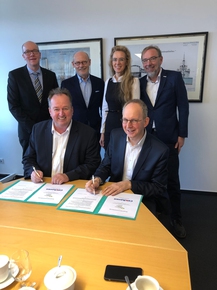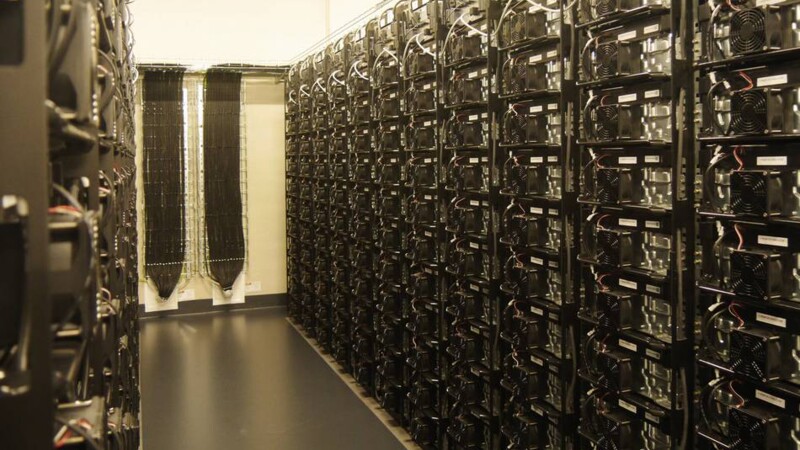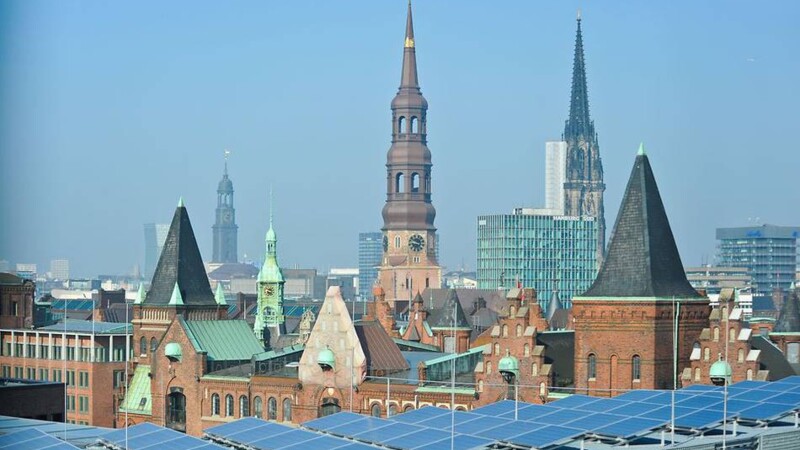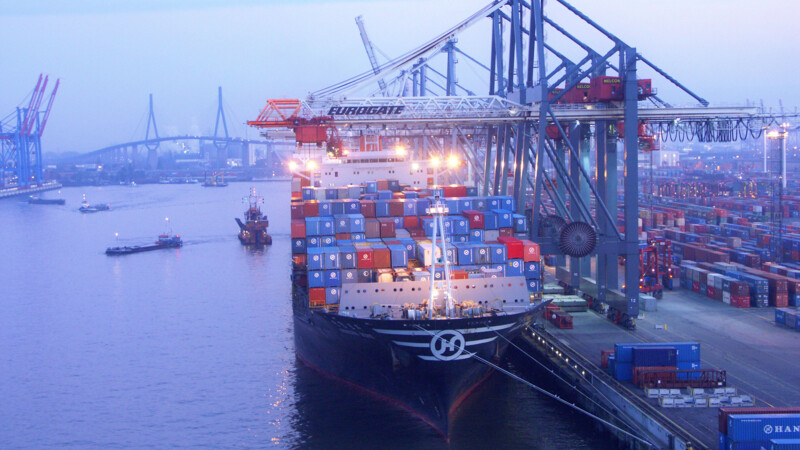Westhagemann and Santjer are agreed that climate plans and the energy transition will fail, if the German government does not take a more ambitious approach to the expanding offshore wind energy and hydrogen, according to the “Ministry of Economics in Hamburg. “We must tackle the existing obstacles, especially the insufficient legal framework on energy and the stagnating expansion of renewable energies urgently and quickly,” Westhagemann said.
Hamburg and Cuxhaven are to work even closer on renewable energies after Michael Westhagemann, Senator for Economics, and the Mayor of Cuxhaven, Uwe Santjer, signed a Memorandum of Understanding on Thursday (February 17, 2020). The understanding foresees opening a branch of the Hamburg Renewable Energy Cluster (EEHH) in Cuxhaven. For many years, the EEHH cluster and the city have been working to advance offshore wind energy. “Co-operating on these important, forward-looking issues holds huge potential for the entire region. The EEHH cluster and its many members across the industry is an important partner in this process, “ said Westhagemann

Legal framework for swifter expansion
Targets for wind energy and hydrogen
Cuxhaven first called for offshore wind energy in 2013. In February, Westhagemann and Santjer reiterated calls to expand environment-friendly energy and raise targets for offshore energy from 15 to 20 gigawatts by 2030, which would be legally binding and set at 30 gigawatts in 2035. The regulated price elements of environment-friendly electricity are to be reduced to establish sector coupling and hydrogen economy. General rules on distances for wind farms on land will be abandoned to accelerate the expansion of wind energy. The expansion of all renewable energies will be outlined in the first half of 2020.
mt/kk/pb
Sources and further information
Five demands:
- Short-term legal implementation of the increased offshore expansion target from 15 to 20 gigawatts in 2030, as decided by the German government in late 2019.
- Setting the expansion target for offshore wind at 30 gigawatts in 2035 to achieve the renewable energy expansion targets for the energy transition.
- Achieving a substantial reduction in the state-regulated price elements of environment-friendly electricity by late 2020 to make a timely start on sector coupling and establishing a hydrogen sector for decarbonizing German industry.
- Specifying the expansion path for all renewable energies by 2030 in the first half of 2020.
- Rapid action to accelerate the collapsed expansion of onshore wind energy again. Renouncement of blanket rules on distances for onshore wind farms.
More
Similar articles

Securing quality electricity in renewable energies era

Routes to carbon neutrality and net zero emissions

Impact Hub Hamburg seeks partners for 24-hour Climathon
